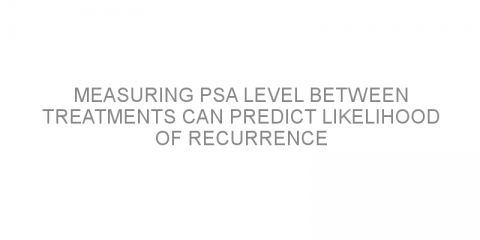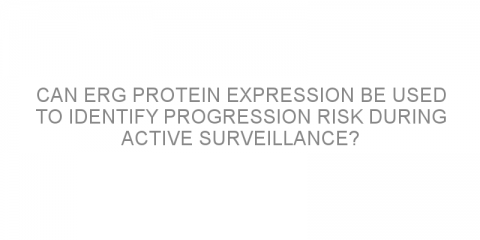In a nutshell The authors aimed to determine whether statin use can prevent prostate cancer recurrence after brachytherapy. Some background Brachytherapy is a form of radiation, where a radiation source is internally placed at the tumor site. It is sometimes given in combination with external beam radiation therapy (EBRT – radiation...
Read MoreCurrent PSA level-Between 4 to 10 Posts on Medivizor
What risk factors can influence surgery success in high-risk prostate cancer patients?
In a nutshell This study identified risk factors in high-risk prostate cancer patients that could influence the success of radical prostatectomy (RP). Some background Prostate cancer is a cancer of the prostate gland that makes up part of the male reproductive system. Though the majority of men will not die from this cancer, some forms can be...
Read MoreHow important is electronic tumor tracking?
In a nutshell This report discusses using a device to track tumor sites in follow-up biopsies in prostate cancer. Some background Biopsies (the removal of tissue from the body and examination to establish the presence of cancer) are a very important part of active surveillance (patient monitoring instead of treatment) in early prostate...
Read MoreMeasuring PSA level between treatments can predict likelihood of recurrence
In a nutshell This paper investigates measurement of the levels of the protein prostate-specific-antigen (PSA) as a predictor of cancer returning when the patient is treated with neoadjuvant androgen deprivation therapy and radiotherapy. Some background Prostate cancer patients have been shown to have higher rates of biochemical relapse-free...
Read MoreRobot-assisted surgery: is it as good as original techniques?
In a nutshell The authors evaluated whether robot-assisted surgery, in patients with high-risk prostate cancer, compares well to other surgical technique. Some background One treatment option for patients with high-risk prostate cancer is surgical removal of the prostate (radical prostatectomy). Three different surgical techniques can be used for...
Read MoreCan short-term hormone therapy pinpoint patients who need surgery?
In a nutshell This study investigated the impact of 3 months of androgen deprivation therapy (ADT) in a group of low-risk prostate cancer patients. Some background For patients with low-risk localized prostate cancer (has not spread beyond the prostate), treatment is not recommended but the patient is carefully...
Read MoreActive surveillance for prostate cancer
In a nutshell This review provided an overview of active surveillance, including suitable patients, discontinuation rates and survival rates. Some background Radical prostatectomy (surgical removal of the prostate gland) in patients with low-risk prostate cancer has, in clinical trials, failed to improve overall and cancer-specific survival...
Read MoreCan ERG protein expression be used to identify progression risk during active surveillance?
In a nutshell This article examined the association between ERG expression at prostate cancer diagnosis and the risk of disease progression during active surveillance. Some background One of the largest dilemmas in the treatment of prostate cancer is the management of a localized low-risk disease. Since radical prostatectomy (surgery to remove the...
Read MoreMulti-parametric magnetic resonance imaging: Is active surveillance right for you?
In a nutshell This study evaluated the use of multi-parametric magnetic resonance imagining (MRI) in the selection of prostate cancer patients for active surveillance. Some background Active surveillance was introduced as a therapeutic strategy to avoid overtreatment of cancer patients with a relatively non-threatening disease. In active...
Read MoreTreatment options for prostate cancer recurrence
In a nutshell This review investigated treatment options following biochemical recurrence after primary treatment for prostate cancer. Some background Prostate cancer can be treated using a variety of methods, the most common being partial or full removal of the prostate gland, a procedure known as a prostatectomy. Other treatments include...
Read MoreIs active surveillance safe?
In a nutshell The study evaluated whether active surveillance (AS) is a safe approach and can prevent over-treatment in patients with prostate cancer. Some background In the recent years, survival rates for prostate cancer patients have increased due to more advanced screening methods, which allow for early detection and prevention of...
Read MoreThe Gleason score can predict which prostate cancer patients can benefit the most from docetaxel therapy
In a nutshell This study re-examines data from a previous study and aims to identify which patients with prostate cancer would benefit the most from docetaxel (Taxotere) therapy. Some background Prostate cancer grows in response to testosterone, the main male sex hormone. In order to reduce the effect of testosterone, castration is the mainstay of...
Read More












